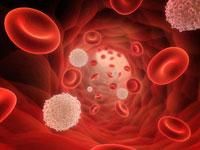Stem Cells Achieve Potent Immunity Against SARS-CoV2 and Common Human Coronaviruses In Patients
Finding presented on patients with hematologic malignancies at the 2021 Transplantation and Cellular Therapy Meetings of ASTCT and CIBMTR show that patients who had undergone a hematopoietic stem cell transplantation can accumulate effective immunity against SARS-CoV2 infection and non-SARS human coronaviruses.

Findings presented on patients with hematologic malignancies at the 2021 Transplantation and Cellular Therapy Meetings of ASTCT and CIBMTR show that patients who had undergone a hematopoietic stem cell transplantation (HSCT) may accumulate effective immunity against SARS-CoV2 infection and non-SARS human coronaviruses (hCoVs). These findings imply protective memory.
“Our findings have implications for the rational use of the upcoming vaccines and for development of broader cross-reactive anti-hCoV T-cell–based immunotherapy approaches for these highly vulnerable group of patients,” the investigators wrote in their poster presentation.
The coronavirus disease 2019 (COVID-19) has affected individuals with comorbidities—including those with cancer, in particular—and causes severe respiratory infections among immunocompromised patients and HSCT recipients. As a result, closely related non-SARS hCoVs 229E, OC43, NL63, and HKU1 may also lead to similar complications.
“Emerging evidence points to the central role of T cells in post-infection immunity against SARS-CoV2 that might be long-lasting, unlike relatively short-lived humoral responses,” the investigators explained. “It is unclear if patients with immune deficiency can generate sufficient immunological memory allowing for future protection.”
Therefore, investigators from Columbia University Irving Medical Center in New York City aimed to understand the development of T-cell responses against SARS-CoV2 in HSCT recipients and patients with hematological malignancies who survived COVID-19; explored T-cell immunity against hCoVs that commonly affect HSCT recipients; and demonstrated the potential of developing universal, cross-reactive immunotherapies for coronaviruses including SARS-CoV2 and hCoVs.
They conducted a comprehensive analysis of T-cell responses against SARS CoV2 and hCoVs in peripheral blood samples from 12 patients after HSCT or with a blood cancer and documented COVID-19 history (COVID-positive, n = 8; COVID-negative, n = 4) as compared with 33 healthy donors with and without documented history of infection (COVID-positive, n = 11; COVID-negative, n = 22).
Of the 12 patients who were immunocompromised, 1 underwent chemotherapy for multiple myeloma, 1 for prostate cancer, and 10 patients had allogenic HSCT.
To gauge the immunocompetence, microculture priming and 14-day expansion strategy was used to stimulate peripheral blood mononuclear cells (PBMC) with overlapping peptide libraries (pepmixes) derived from spike 1 and 2, membrane and nucleocapsid from SARS-CoV2 and their counterparts from all 4 hCoVs. Expanded T cells were re-challenged with the pepmixes and tested for specific cytokine release by FACS, according to the poster.
The investigators saw discernable T-cell activity against SARS CoV2 antigens in healthy COVID-19 survivors, predominantly within the CD4-positive T-cell compartment. On the other hand, unexposed subjects who displayed good reactivity against hCoVs had significantly lower, more variable responses.
Of note, in the vulnerable population of patients, the investigators saw the same T-cell activity against the majority of SARS CoV2 antigens, “indicating that those subjects were highly capable of generating T-cell memory,” the investigators wrote.
“Furthermore, all tested patients also displayed potent responses against multiple antigens from common hCoVs. Marked cross-reactivity between hCoV antigens and their counterparts from SARS CoV2 was seen, especially [versus] previously unexplored membrane and nucleocapsid hCoV antigens.”
Moreover, COVID-19–positive individuals demonstrated a higher frequency of polyfunctional CD4-positive T cells and a higher presence of CD4-positive T-effector memory, or TEM, cells which also supports the ability to generate T-cell memory.
Lastly, hCoV-specific CD4-positive T-cells from both COVID-negative and -positive individuals responded against antigens from other hCoVs, and SARS CoV2, “suggesting that the generation of polyreactive CD4[-positive] T cells might be possible,” the researchers said.
Reference:
Migliori E, Soni M, Assal A, et al. Robust T Cell Immunity Against SARS-CoV2 and Common Human Coronaviruses Emerges in Stem Cell Transplant Recipients and Patients with Hematological Malignancies Who Survived COVID-19. Presented at: 2021 Transplantation and Cellular Therapy Meeting. February 8-12, 2021; Virtual. Abstract LBA11.
2 Commerce Drive
Cranbury, NJ 08512
All rights reserved.